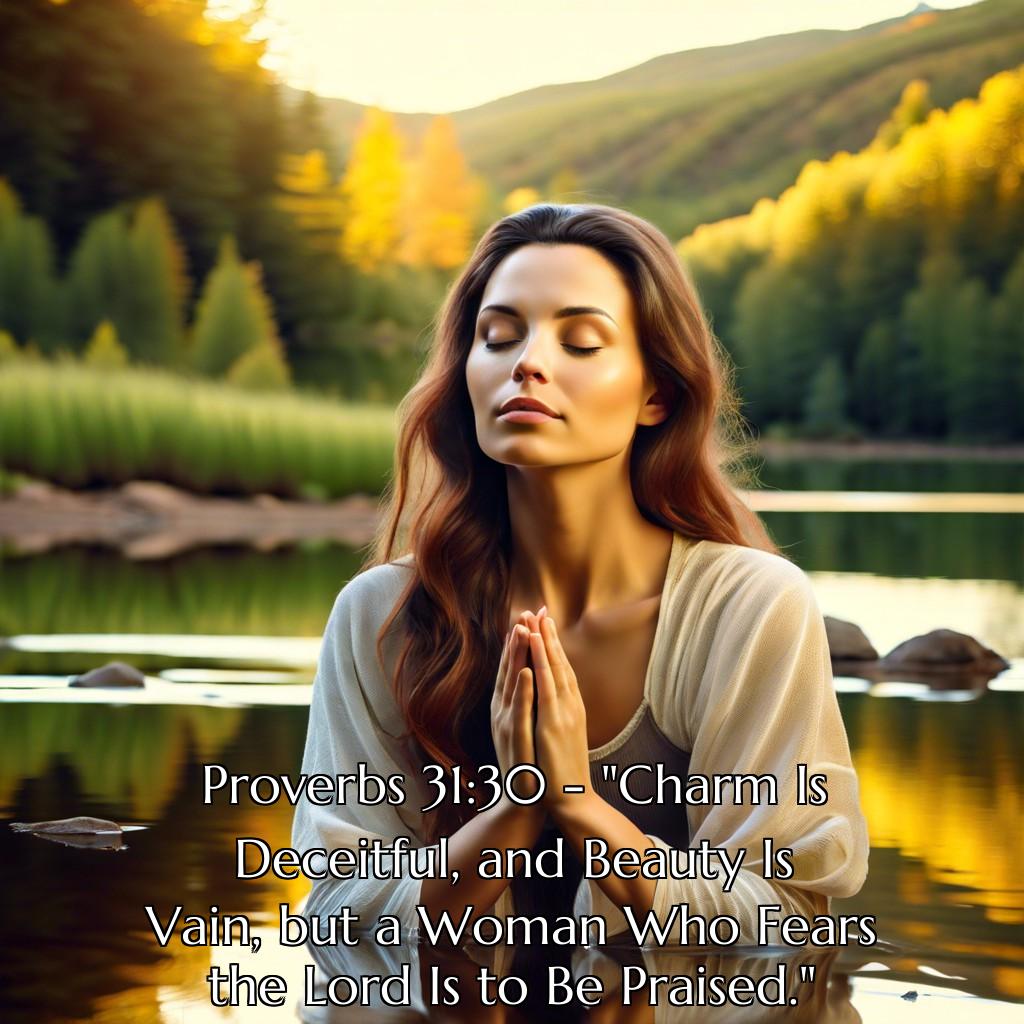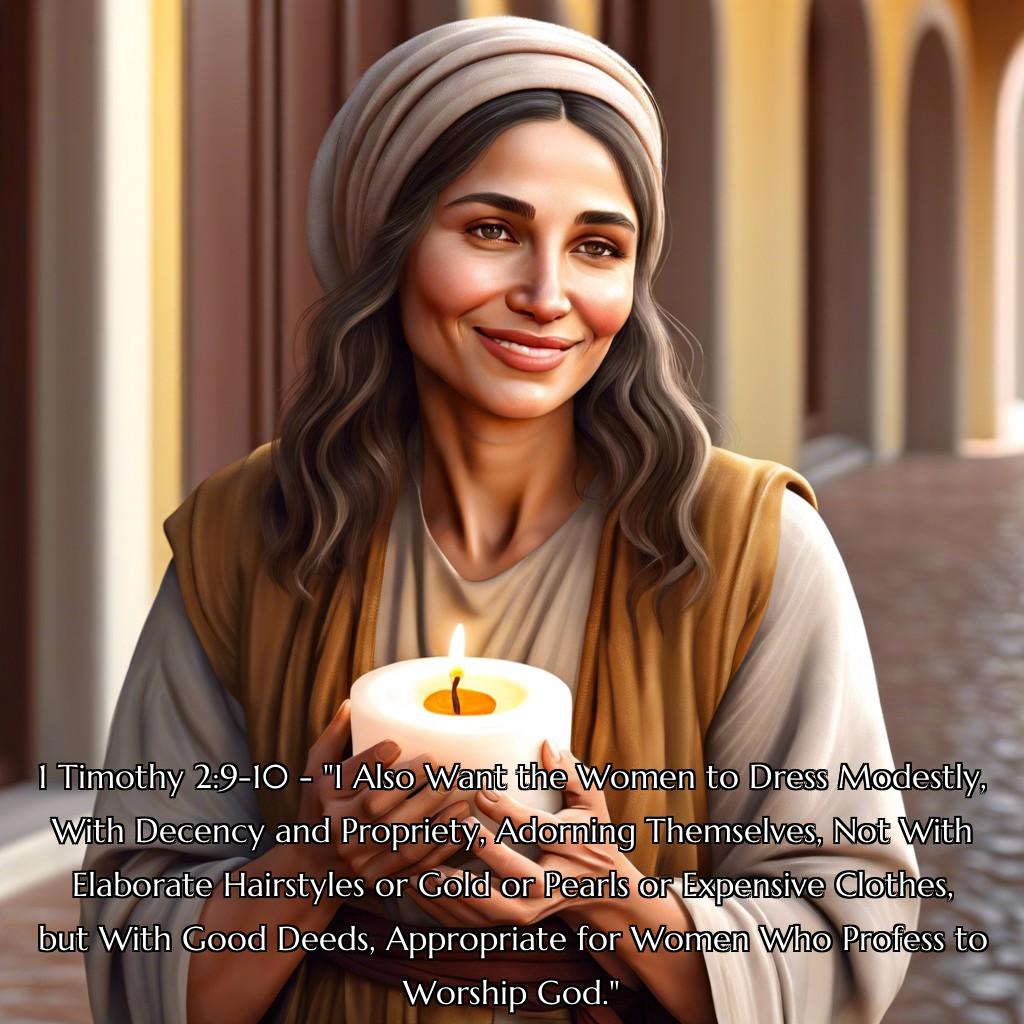This article shares ten bible verses that highlight women’s roles, significance, and virtues as depicted in the scriptures.
Women hold a special place in the heart of the Bible, with numerous verses dedicated to their strength, wisdom, and spiritual significance. In this article, we delve into specific scriptures that highlight God’s vision for women, from creation to their vital roles in society and faith. Join us as we explore these powerful verses and uncover their profound meanings, offering a comprehensive understanding that uplifts and empowers.
Genesis 1:27 – “So God Created Mankind in His Own Image, in the Image of God He Created Them; Male and Female He Created Them.”

This verse emphasizes the inherent equality and worth of both men and women. Created in the image of God, women possess intrinsic value and dignity.
Firstly, being created in God’s image signifies that women share in the divine nature, which encompasses qualities like love, wisdom, and creativity.
Secondly, it highlights that men and women together reflect the fullness of God’s image. This underscores the importance of both genders in God’s plan and their mutual dependence.
Moreover, it dispels cultural biases that might have historically diminished women’s roles. This divine acknowledgment of equality calls for respect and honor toward women in all aspects of life and spirituality.
The verse sets a foundational understanding that forms the basis for all subsequent biblical teachings on the value and importance of women.
Proverbs 31:30 – “Charm Is Deceitful, and Beauty Is Vain, but a Woman Who Fears the Lord Is to Be Praised.”

Charm and beauty are often celebrated in society, but the verse highlights their fleeting and superficial nature. Instead, it emphasizes the eternal value of a woman who reveres God.
A woman who fears the Lord is guided by faith and wisdom. Her strength comes from inner piety rather than outward appearances.
Charm can often be manipulative, and physical beauty fades over time. A heart centered on God transcends these temporal qualities.
True praise and respect are due to one whose life reflects God’s love and commandments. This kind of woman enriches her community and family with lasting virtues.
Proverbs 31:25 – “She Is Clothed With Strength and Dignity; She Can Laugh At the Days to Come.”

This verse emphasizes the inner qualities of a woman, highlighting strength and dignity as her adornments. It’s a powerful reminder that true beauty and worth come from character.
Strength here isn’t just physical but emotional and spiritual resilience. It denotes a capacity to face challenges with perseverance.
Dignity speaks to self-respect and a sense of worth. She carries herself with grace, knowing her value is far beyond superficial appearances.
The phrase “laugh at the days to come” suggests confidence in the future. It’s an assurance rooted in faith and preparation, not in complacency or arrogance.
Combined, strength and dignity enable a woman to face life’s uncertainties with poise and assurance. It’s about embracing each day with trust and positivity, grounded in a strong moral foundation.
1 Peter 3:3-4 – “Your Beauty Should Not Come From Outward Adornment, Such As Elaborate Hairstyles and the Wearing of Gold Jewelry or Fine Clothes. Rather, It Should Be That of Your Inner Self, the Unfading Beauty of a Gentle and Quiet Spirit, Which Is of Great Worth in God’s Sight.”

True beauty, according to this verse, isn’t found in outward appearances. It’s about cultivating the inner self.
God values a gentle and quiet spirit greatly. This means maintaining inner peace and kindness.
Elaborate hairstyles and fine clothes can distract from inner virtues. What’s inside should shine brighter.
Focusing on character over appearance aligns with how God sees worth.
Practicing humility and gentleness enriches one’s spiritual life.
Galatians 3:28 – “There Is Neither Jew nor Gentile, Neither Slave nor Free, nor Is There Male and Female, for You Are All One in Christ Jesus.”

This verse emphasizes the profound unity and equality found in Christ. It dismantles societal and cultural barriers, affirming that everyone is equal in the eyes of God.
First, it signifies the removal of ethnic distinctions, making it clear that race does not determine one’s standing with Christ.
Second, it addresses social status, stating that being free or enslaved does not affect one’s value in the Christian community.
Third, it highlights gender equality, asserting that men and women are equally valued and unified in Jesus.
This message encourages believers to see beyond physical differences and embrace unity in Christ, fostering an inclusive and loving community.
Titus 2:3-5 – “Likewise, Teach the Older Women to Be Reverent in the Way They Live, Not to Be Slanderers or Addicted to Much Wine, but to Teach What Is Good. Then They Can Urge the Younger Women to Love Their Husbands and Children, to Be Self-controlled and Pure, to Be Busy At Home, to Be Kind, and to Be Subject to Their Husbands, So That No One Will Malign the Word of God.”

These verses offer a framework for older women to guide younger women in living a life that honors God. They urge older women to be role models, showing reverence, avoiding gossip, and practicing moderation. Such a lifestyle allows them to teach younger women effectively.
The emphasis is on loving their families and being self-controlled. Being busy at home isn’t about confinement but about diligence and care in the household. Kindness and purity are key virtues.
Submission to husbands is often misunderstood. It’s about mutual respect and maintaining harmony, reflecting Christian values. This guidance aims to uphold the integrity of God’s word through exemplary living.
1 Timothy 2:9-10 – “I Also Want the Women to Dress Modestly, With Decency and Propriety, Adorning Themselves, Not With Elaborate Hairstyles or Gold or Pearls or Expensive Clothes, but With Good Deeds, Appropriate for Women Who Profess to Worship God.”

Paul emphasizes the importance of inner beauty over outward appearance. Dressing modestly with decency and propriety reflects respect for oneself and others. Here are some points to unpack the deeper meaning:
- Modesty: This encourages humility and self-respect, steering away from vanity.
- Inner beauty: Focus on the heart and character rather than outward adornment.
- Good deeds: Actions matter more than appearances, showcasing faith through behavior.
- Cultural context: In Paul’s time, extravagant adornment could distract from spiritual focus.
This verse highlights that true beauty comes from one’s character and actions, aligning oneself with God’s values.
Proverbs 31:26 – “She Speaks With Wisdom, and Faithful Instruction Is On Her Tongue.”

This verse highlights the importance of wisdom and instruction in a woman’s speech. Here are some key points to consider:
- Wisdom is highly valued in the Bible. Speaking with wisdom means sharing insights that are beneficial and often rooted in experience and understanding.
- Faithful instruction indicates a responsibility to guide others truthfully and lovingly, aligning with God’s teachings.
- The verse suggests that women have a vital role in teaching and mentoring within their communities, especially in the context of faith and family life.
- It calls for a nurturing spirit, using words to build up and encourage rather than to tear down.
In essence, this verse emphasizes the strength and influence a wise and instructive woman has in her community.
Luke 1:45 – “Blessed Is She Who Has Believed That the Lord Would Fulfill His Promises to Her!”

Belief in God’s promises is central to this verse, highlighting Mary’s faith when she was told she would bear the Messiah.
Trust in divine plans over personal understanding. It’s often easier to rely on what we see, but true faith looks beyond the visible.
Blessing comes from trust. Mary’s belief brought her joy, reinforcing that our spiritual blessings stem from faith, not circumstances.
Encouragement for all women. This verse extends beyond Mary, suggesting that any woman who trusts in God’s promises will find herself blessed.
Faith as strength. Mary’s faith wasn’t passive; it was active and strong, guiding her through extraordinary challenges.
Ephesians 5:25 – “Husbands, Love Your Wives, Just As Christ Loved the Church and Gave Himself Up for Her.”

This verse from Ephesians offers a high standard for husbands – to love their wives selflessly. The comparison to Christ’s love for the church implies a profound, sacrificial love.
Christ’s love is unconditional; husbands are called to reflect this in their marriage. It’s not just about emotional affection but a commitment to the spouse’s wellbeing.
Selflessness is key. Christ gave everything for the church, indicating husbands should act with the same self-sacrificial spirit towards their wives.
Lastly, nurturing. Just as Christ nurtures the church, husbands are encouraged to support and build up their wives, fostering a marriage rooted in respect and love.





